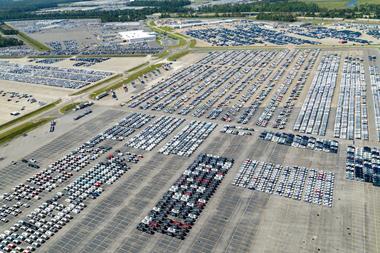OEMs and LSPs must often react to the supply chain in real time. Extreme weather in the US, UK and Japan have all recently affected freight routes. The crisis between Russia and Ukraine, for example, blocked the port of Sevastopol, diverting cargo, along with posing much more serious threats to business.
These events cause lost sleep, but more fundamental issues for supply chain managers lie not in the disruptions they know about, but in the future they don’t. Predictions are hard for any operation, but in the supply chain billions of dollars are tied up in the unknown.
Manufacturers buy components, slot in factory orders and allocate vehicles based on confirmed sales (which may be cancelled), transfers to internal sales companies (who may disagree with their allocation) and the outlooks of their brightest economists (who, despite the rumours, are only human). Any change – a failed supplier, a late customisation – can knock the plan off kilter, leading to parts being rushed at great expense, or to delivery delays. [sam_ad id=6 codes='true']
No matter how stable a manufacturer schedules production, such changes are inevitable, but Opel/Vauxhall has made a breakthrough in dealing with them by breaking down the usual barriers between those who order parts, follow up on material and manage logistics. In its new ‘order slotting’ system, supply constraints and bottlenecks are integrated directly into the order pipeline up to 11 months before production. When a supplier shows signs of distress, or a ship on the water is diverted, the system automatically accounts for impacts to production planning, giving material and logistics managers the opportunity to respond as far in advance as possible. Michael Scholl, director of supply chain at the carmaker, calls it a “paradigm shift towards automation and real-time data transparency”.
This process will not make the future risk proof. It cannot even guarantee Opel a chance to correct any issue in time. Nonetheless, bringing together order planning, material flow and logistics is an important and long overdue change. It is not completely separate everywhere – Japanese OEMs’ penchant for stability tends to make the supply chain more knowable, while the German build-to-order model helps synchronise tier suppliers – but there are often disconnects between who knows what in the supply chain. The more material and logistics constraints are fed directly into a production plan, the less uncertain the future will be.




















